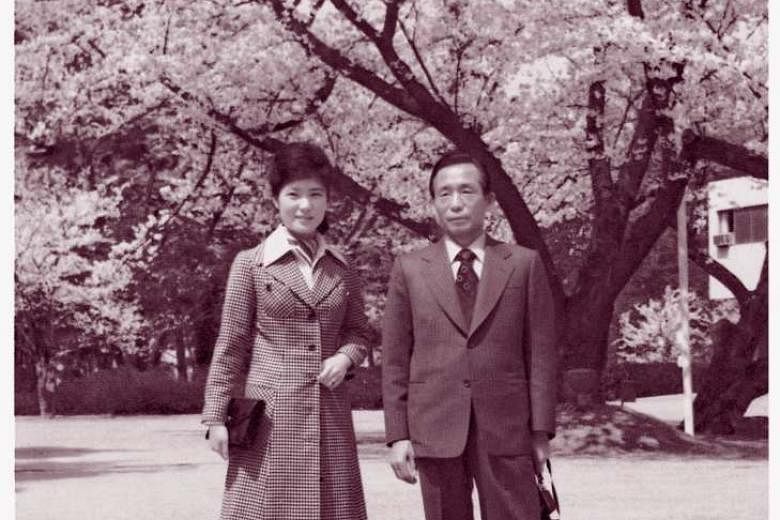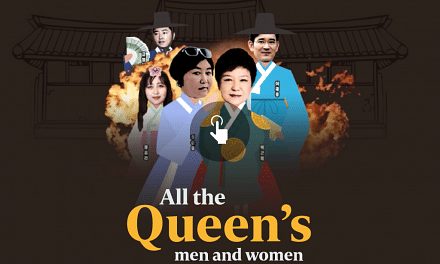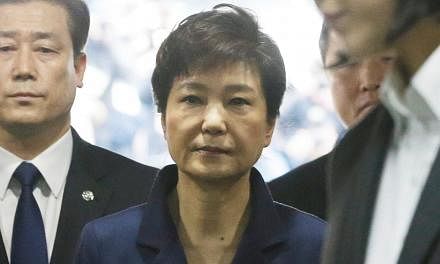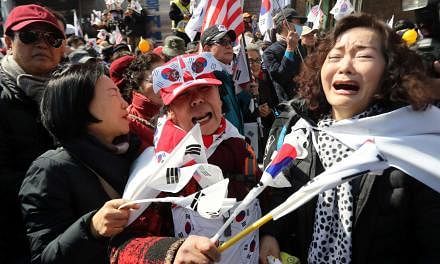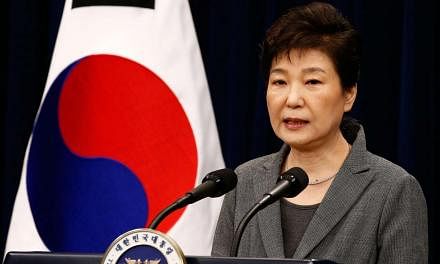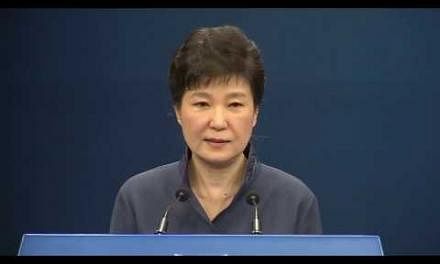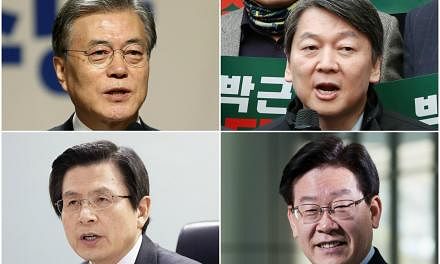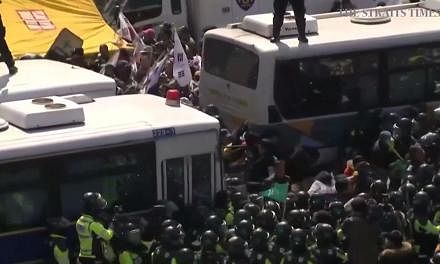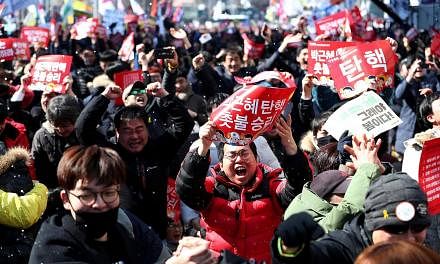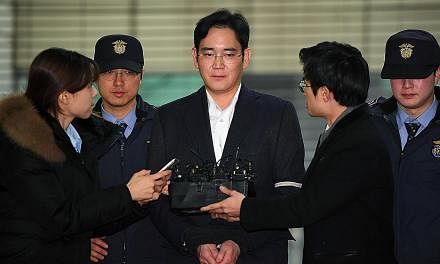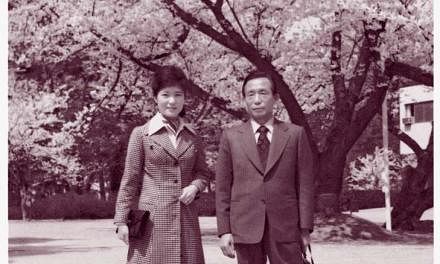To South Koreans, Cheong Wa Dae (meaning pavilion of blue tiles) has the best fengshui in the whole country. It is befittingly the residence for the nation's highest office-holder- the President.
It was also the childhood home of now disgraced president Park Geun Hye who moved into the presidential Blue House after her father, Major General Park Chung Hee, seized power in a military coup in 1961. She was nine at that time.
Over the next 18 years, the strongman would preside over a period of rapid industrialisation that transformed an agrarian society into an economic powerhouse.
His legacy would eventually help pave the way for his first-born to return to the country's most prestigious address. She was voted in as South Korea's first female president in 2012.
While in the Blue House, tragedies befall the family - and the nation - twice: In 1974, her mother took a bullet meant for the husband. Five years later, her father was killed assassinated by his own security chief.
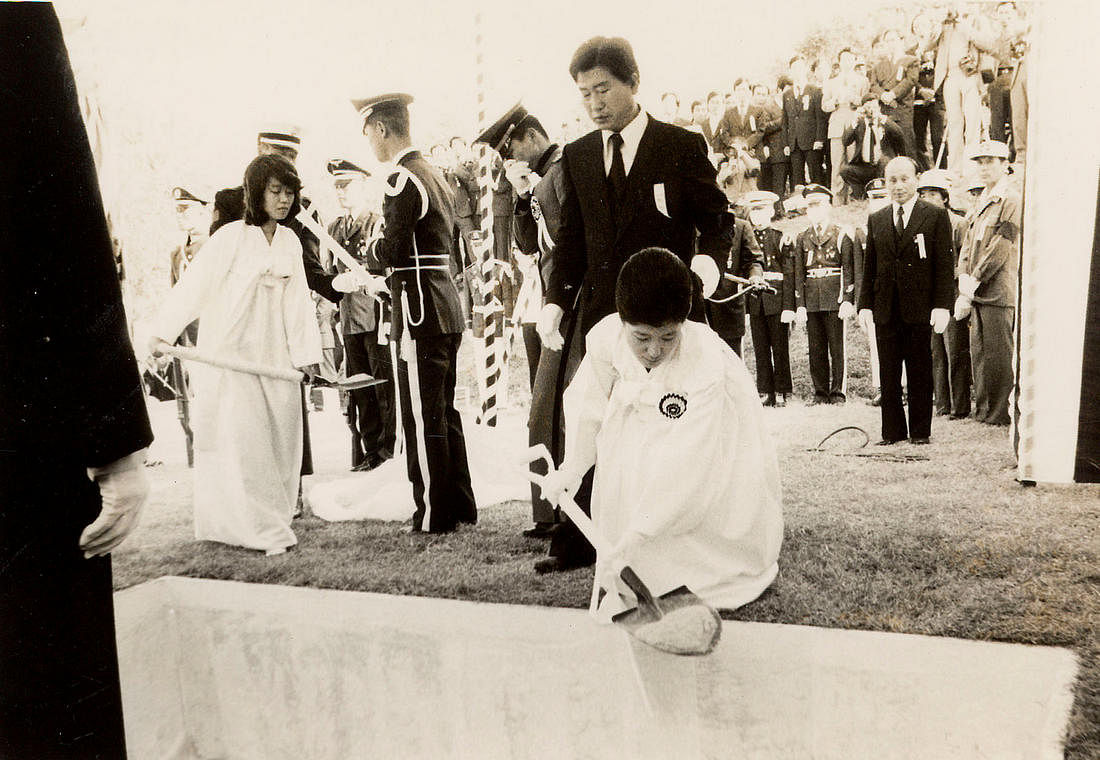
Her family tragedies endeared her to the older generations of voters who lived through the tumultuous period. Ms Park, who never got married, once famously said during the 2012 presidential campaign she is married to the country.
Campaigning on a platform of being being incorruptible, she has also said she cut ties with her brother and sister to prevent nepotism.
But in solitude, she became overly dependent on a friend who would later cause her downfall.
"Living on my own, I had no one to help me with the many private affairs that needed taking care of, so I turned to Choi Soon Sil, whom I have known a long time for help." Ms Park said during one of the three televised apologies.
In her final defence to the Constitutional Court's eight sitting judges last month (February 2017), she denied any legal wrongdoings, but said: "In retrospect, I have belated regret that I should have been more cautious with my trust in her."

Choi, 60, has been indicted on charges, including abuse of power and extortion from South Korea's big conglomerates. Both women have known each other for 40 years.
Loneliness, said Ms Park, led her to lean on Choi.
"Choi was the person that stood by me during my hardest times, so I had my guard down. Looking back, I now see this all came about because I trusted our relationship and did not scrutinise things carefully," said 65-year-old Park.
Choi, according to Korean media, has been a faithful companion to Ms Park over the years. She nursed Ms Park back to health after the latter's face was slashed by a man at an election rally in 2006.
While Ms Park has publicly spoke about her tragic life story, it seems that she has not been able to walk out of the painful memories.
After she left the presidential Blue House following the death of her father, she led a secluded life in southern Seoul. The house, according to New York Times, was plastered with photos of her dead parents and adorned with their relics.
"Her home was more like a museum for Park Chung Hee," Choi Sang Yeon, an editorial writer at the South Korean daily JoongAng Ilbo. He wrote recently of his visit there a decade ago.
"It looked as if her clock had stopped in the 1970s and she spent much time communicating with her dead father."
In her 1993 memoir, "What If I Were Born in an Ordinary Family," Ms Park wrote of her tragic family history and her sadness: "In my life's scale, the worthwhile times have never outweighed painful ones."
In all her three televised apologies to the nation, she has remained fiercely protective of her long-time friend. The harshest remark she has made against Choi was that she had "allowed my guard to drop" around Choi.
On Dec 9, 2016, lawmakers voted overwhelmingly to impeach her. They include lawmakers from her Saenuri Party, now known as Liberal Korea Party, which she had led to a string of electoral victories.
On Friday (March 10), her downfall from the highest office in the country was complete when the Constitutional Court upheld her impeachment. The court found that she hid Choi's involvement in government affairs and attacked anyone who tried to criticise that arrangement, including the media.
Writing in the East Asia Forum, political analyst Kim Hyung-A said recently discovered digital documents show that conservative elites and opposition politicians knew as early as 2007 - if not earlier - of Park's relationship with Choi and Choi's father, Choi Tae Min, a shamanistic pseudo-religious cult leader that Park met in the 1970s. It was also no secret that Choi's ex-husband Jeong Yun Hoe was one of Park's longest-serving aides until 2004, he said.
"In November 2014, prosecutors glossed over allegations that Jeong had continued to meddle in state affairs since resigning from public life. By then, Park's mysterious four-decade relationship with the Choi family was a relatively well known gossip topic among politicians, social commentators, the media and business community."
Yet, said Associate Professor Kim, none of them did anything to block President Park's personalised political power until now.
National Assembly Speaker Chung Sye Kyun on Friday (March 10) called for a "thorough self-reflection by the political circle". "This incident is an outcome of complicated problems in Korean politics, rather than personal matters implicating the (former) president and her aides," he said in a statement.
Seven of Ms Park's eight predecessors were investigated for corruption or cronyism, but none was ousted by the Court. One of them, the late president Roh Moo Hyun, even killed himself after leaving office.
Now, another South Korean president has been brought down by the mixing of politics and business. This time, she is leaving Cheong Wa Dae for good and in disgrace.
This story was updated on March 10, 2017.
